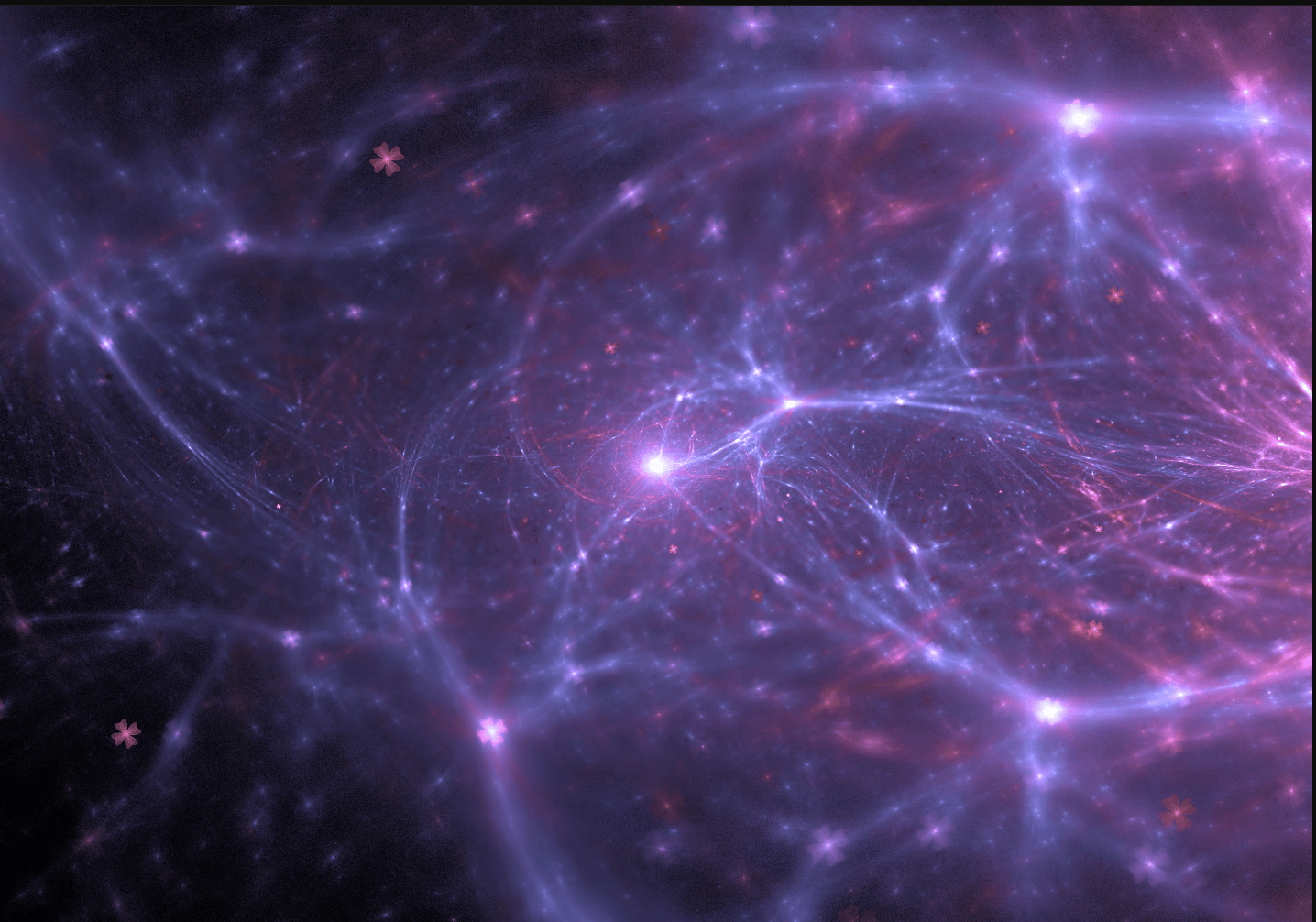Tamotsu Mental Health Supplement вАУ Scallop plasmalogen
Plasmalogen is one of the phospholipids present in our body.
Its amount decreases with mental fatigue, the cause of which is stress. As a result of the research, a close connection of such a decrease with dementia was found and it was found that taking plasmalogen prevents dementia or reduces its degree. This was proved by a group of researchers led by Takehiko Fujino, professor emeritus at Kyushu University, who developed this supplement. The clinical study used plasmalogen S from scallops in soft capsules, produced by our company.
Contains high-purity plasmalogen extracted from scallops. Manufactured in a factory that complies with the Good Manufacturing Practice (GMP) standard. An ingredient used in a clinical trial with more than 500 participants.
What is a plasmalogen?
Plasmalogen is one of the types of phospholipids that has an antioxidant effect. It is found in all animal tissues and makes up 18% of the total amount of phospholipids in the human body. Its content is especially high in nerve cells of the brain, heart muscle, lymphocytes and macrophages.According to recent studies, plasmalogen controls major brain functions such as membrane fluidity and the release of neurotransmitters through cell membrane fusion. Thanks to the reception of plasmalogen, the process of transmitting information in the brain is simplified and mental fatigue recedes.
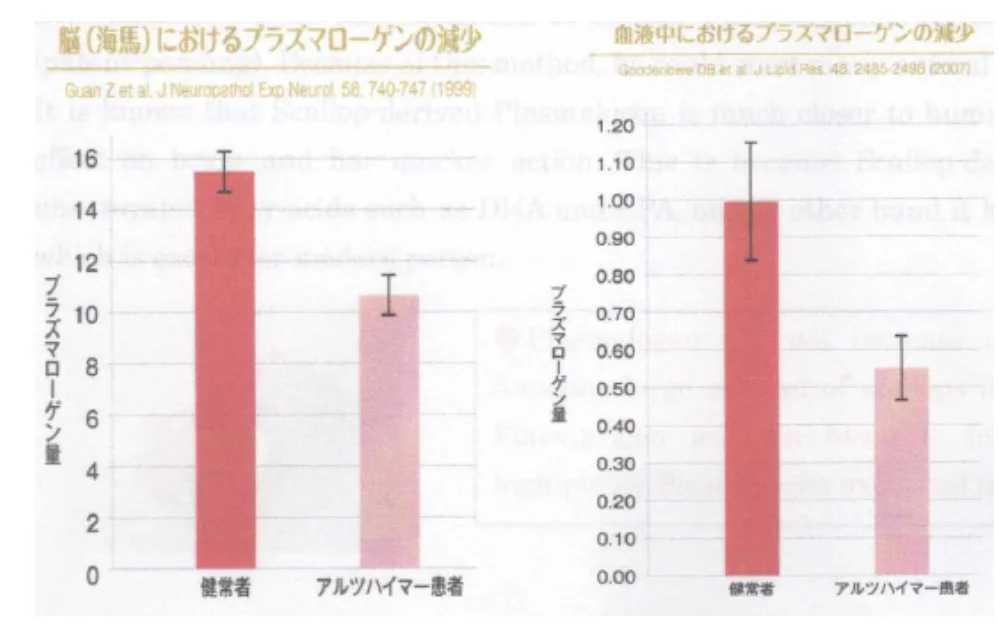
Graph 1.
Reduction of the number of Pl in the brain (hippocampus)Red color: Healthy person
Pink color: A patient suffering from Alzheimer's disease.
Graph 2.
Reducing the amount of Pl in the bloodRed color: Healthy person
Pink color: A patient suffering from Alzheimer's disease.
Plasmalogen research began in the USA at the end of the XX century, after it was discovered that in patients suffering from Alzheimer's disease, the level of plasmalogens in the brain is lowered.
Later, a group of researchers led by Dr. Takihiko Fujino and Canadian scientists confirmed that the level of plasmalogens also decreases in the blood of such patients. Dr. Fujino conducted a study to confirm that taking plasmalogen as a supplement is the key to treating dementia.
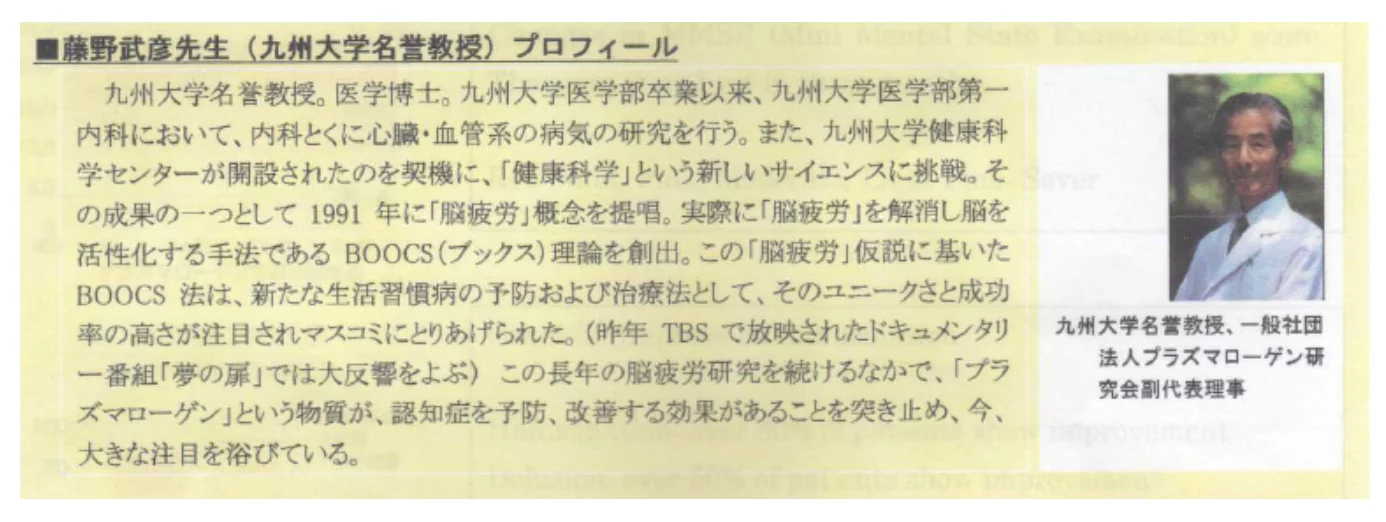
How does plasmalogen help in the fight against dementia?
Brain cells are oxidized and damaged by stress. This phenomenon is called "mental fatigue". The stronger the mental fatigue, the greater the consumption of plasmalogen. In healthy people, the level of plasmalogen is restored automatically.Dr. Fujino defined dementia as a condition in which plasmalogen recovery is not carried out and began testing plasmalogen on mouse models of Alzheimer's disease. Thus, the following results were obtained:
- Stimulation of neurogenesis in the hippocampus (memory management area).
- Improvement of cognitive function and learning ability.
- Preventing the accumulation of beta-amyloids.
Development of a preparation containing plasmalogen from scallop

Dr. Takehiko Fujino successfully extracts plasmalogen from scallops using a new method (the corresponding patent application is pending). Thanks to this method, he was able to conduct many animal trials and clinical studies.
It is known that scallop plasmalogen is very similar to human plasmalogen, so it has a more significant effect on the brain and acts faster compared to other types of plasmalogen. This is because the scallop plasmalogen contains unsaturated fatty acids such as DHA and EPA, and on the other hand, it contains extremely little arachidonic acid, which is abundantly contained in the modern human body.
The amount of plasmalogen in the body will not increase even when eating a large number of scallops. It was found that the level of plasmalogen in the blood increases only when taking high-purity plasmalogen extracted by a special method.
Data on improvements after taking plasmalogen from Tamotsu scallop
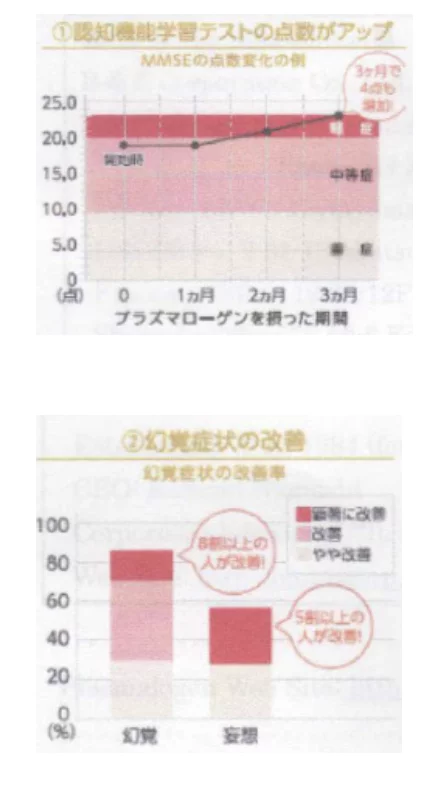
Graph (1) The score on the cognitive function test increased.
Change in the MMSE score (Short Mental Status Assessment Scale).The score has increased by 4 points in three months.
Red color: light degree, pink color: medium degree, light pink color: heavy degree.
Graph (2) Positive effect on hallucinations.
Hallucinations: improvements were noted in more than 80% of patientsDelusional ideas: improvements were noted in more than 50% of patients
Red: significant improvements
Pink color: improvements
Light pink color: minor improvements
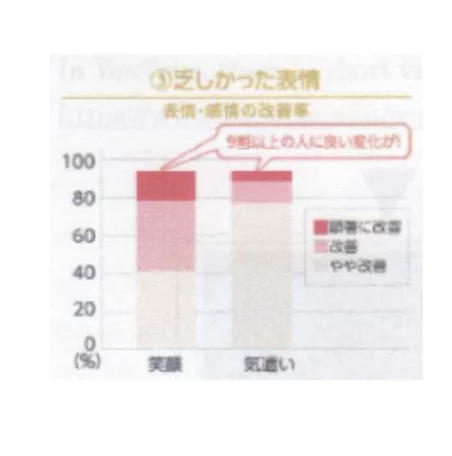
Graph (3) Improvements in facial expression and expression of emotions.
Smile: more than 90% of patients began to smile more oftenCaring: More than 90% of patients have become more caring towards others.
Red: significant improvements
Pink color: improvements
Light pink color: minor improvements
This text is protected by the law of the Russian Federation on copyright protection, as well as international legislation in this area.
Any partial or complete copying and reproduction without the permission of the owner is prohibited. Persons guilty of violating copyright and exclusive rights to use the text bear civil, administrative and criminal liability"
